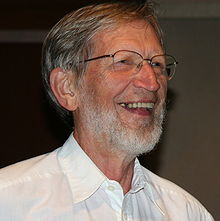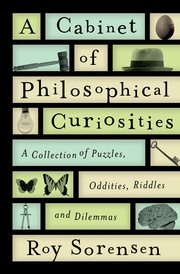Why can’t they just let Him be?

The ethics of truth – religion
February 12, 2020
The truth of ethics
March 18, 2020Degrees of belief in God (or gods) come in many varieties. Most of these degrees depend on the question to what extent God is thought to intervene in the affairs of the world.
According to most believers, after creation, an almighty, omnipresent, omniscient and benevolent God actively takes care of the universe (theism), while minorities believe that the universe develops autonomously after Gods original plan (deism), or that God and universe are identical (pantheism). Disbelief of the above theories is very diverse also, varying from those who think that the existence of God is unknowable (agnosticism), across those who completely deny any supernatural being (atheism), to those who’d rather ignore the question of God’s existence altogether (ignosticism).
Why do people continuously discuss the question if God exists or not? There might be psychological, social or political answers to this question, but these are not very fundamental. They may easily be left to social scientists, psychologists or even biologists. Philosophical answers might come from metaphysics and epistemology. This series of articles serves to argue that “Does God really exist?” is a bad question and that mankind, believers and non-believers alike, should better stop asking it.
Historically, proof for the existence of gods came in three categories. The first category is a priori proof, purely relying on logic, concentrating on God as existent. The other two categories are a posteriori proof. One of them starts from our experience of the universe, the other from the nature of human beings.
God as existent – ontological arguments
The classic argument for the existence of God was given by Anselm of Canterbury. Anselm distinguishes between God as existing only in the human mind and God as real being also. If God – the ‘greatest being conceivable’– is only in the mind, there might be some greater being existing in both the mind and reality, which is impossible, since God is the greatest being conceivable. Therefore, God exists in reality also.

Already in Anselms own days critics wrote that we might conceive of treasure islands in just the same way we conceive of God. Anselm stepped into the same trap where René Descartes would put foot five centuries later. “I think, therefore, I exist” is surprisingly similar to “I think of God, therefore God exists.” Both of them ascribe qualities to existents without first defining existence as such. Another common aspect is their dualistic approach to existence: existence in the mind logically precedes existence in reality.
The Persian philosopher Mulla Sadrā (1571 – 1640) is renowned for his transition from essentialism (proving existence by ascribing qualities) to existentialism (accepting existence as brute fact). To Mulla Sadrā, existence is a singular and simple reality, graded according to perfection, of which God is the most perfect limit point. Since the soul is in direct unity with reality – and thus with God –, God makes himself directly intelligible in the human soul; existence in reality logically precedes existence in the mind.
But Mulla Sadrā leaves us with the problem of how ‘perfection’ should be defined, much like Anselm, who didn’t specify ‘great’ when he called God the ‘greatest’ being. What makes God the greatest? I already mentioned the classic answers: God is almighty, omnipresent, omniscient and benevolent. The question is if these are consistent. Can God overrule the laws of nature he himself created? If God is all of these, why do bad things happen?
There is also a tricky logical issue that bears on all these arguments. If God exists, he is also the creator of concepts like ‘perfection’, ‘greatness’ and ‘excellence’. This would mean that God created the premises for his own existence, a classical example of circular reasoning.

A modern variation of Anselms argument was given by Alvin Plantinga (1932 -). The argument relies on the theory of possible worlds. These are worlds like our own actual world, where we change facts in such a way that they remain consistent with the rest of what we know. The advantage of the concept of possible worlds is that if we believe something to necessarily exist in all possible worlds, we may be sure of its existence also in reality. Some philosophers see possible worlds as useful fiction, others like for example David Lewis hold a realist theory of possible worlds: they really exist, although they are not actual.

Plantinga writes that if in a possible world W a being has maximal excellence – whatever that means –, then maximal excellence in every possible world leads to maximal greatness. The argument goes on after this, but its biggest flaw is clear already. If possible worlds are seen as useful fiction only, then they won’t bring God any closer to reality. If, however, possible worlds really exist, they are filled not only with countless counterparts of a maximally excellent God, but also with identical copies of all humans, blue whales and treasure islands. In Lewis’ realist theory, there exist countless, parallel possible worlds that do not influence each other; therefore, adding up existents from possible worlds is very questionable. And even if we do add them up, all other existents will have to be added up in just the same way as all Gods: one God for every eight billion people, for every twenty thousand blue whales and for every zero treasure islands.
Even more fundamental is the following counterargument – my own:
1 There is a possible world W1 where there is no god.
2 In this possible world W1 lives a philosopher P1.
3 P1 believes that God exists in W1.
4 Hence, P1’s belief is false.
5 There is a possible world W2 where God exists.
6 In this possible world W2 lives P1’s identical counterpart P2.
7 P2 believes that God exists in W2.
8 Hence, P2’s belief is true.
9 Since P1 is identical to P2, P1 holds a belief that is both true and false.

The point is that both logically and ontologically, existence will always have to precede belief. As Roy Sorensen writes in the Stanford Encyclopedia of Philosophy, it is impossible to deduce the existence of something without using any existential premises. This will, of course, imply that the first of all existents cannot be deduced: logical proof that God exists is impossible.
The above argument tells us more. If we replace ‘God’ with, for example, ‘sand’, the argument will work just the same. Critics might argue that since we may replace God with just anything, the argument says nothing about the existence of God. Arguing that sand can be seen, smelled and felt doesn’t help, since people may claim to experience God in just as many ways. And once we start arguing about experiences, the argument loses its a priori status.
Another criticism may be that God is not to be seen as a just one more existing thing, but rather as a characteristic of the universe as a whole. So, let’s replace God with ‘gravity’. Gravity might not exist in some possible worlds. But for the existence of gravity in the actual world, we have consistent scientific theories. Our actual scientific theories are not consistent with gravitation-less worlds. With godless worlds however, the actual scientific theories are consistent all the way…
I gave my argument in spite of the fact that I wrote above that “Does God exist?” is a bad question. But my argument is not to disprove that God exists – that would be even more foolish than trying to prove he does, see also Negative truths. It is to show that if God exists as a necessarily existing being, He should be indispensable to the theories of the natural sciences. But the sciences seem to do pretty well without Him. Even if we should by any chance get the opportunity to falsify the God-hypothesis, business in the universe would remain as usual. More on this issue will appear in my next article: God as a stopgap.
God as first cause – the cosmological argument
The word cosmos comes from Greek and is used to indicate the universe as an orderly, harmonious system. Obviously, this is in itself a metaphysical position. Someone believing the universe to be chaos would not want to use it. ‘Universe’ – the totality of everything existing – is a far more neutral term. Cosmology, then, is the study of the – presumed –order of the universe. Cosmological arguments try to explain God from this order as perceived by us.
The great champion of using cosmology to understand God was Thomas Aquinas. Since causal chains cannot be infinite – at least according to Thomas –, every causal chain in the universe must have a first cause as well as an end. “First’ should not be read as temporal, but rather as hierarchical: the first cause may have set off the universe, but may also be needed to keep it going. Moreover, in the universe things emerge, exist, and perish. Therefore, says Thomas Aquinas, there exists a necessary being that never perishes. This being he calls God. However, he explicitly writes that though creation by God is most likely the first cause of everything, it cannot be logically proven. The rest is a matter of faith, not reason.

Thomas Aquinas’ Five Ways defined God as the Unmoved Mover, the First Cause, the Necessary Being, the Absolute Being and the Grand Designer. Unfortunately, they have been read as logical arguments both by defenders as well as deniers of God’s existence. But since they come from the perception of Creation, and since perception is never infallible, they cannot count as logical proof.
Deniers of the cosmological argument ask all kinds of questions. If he exists, why would God need a plan? Why didn’t God just conceive of the world instead of creating it? Or is the actual universe only a thought of God? Why didn’t omnipotent God create a perfect world right away? Is creation still going on? Suppose God did create a perfect world, why don’t we notice its perfection? What we see as change, is that real change? What is change anyway? What is causality? What if the universe is not moving from start to finish, but is cyclic? Would we then still need a first cause? Many Christians, following Paul in Romans 11:33 would argue that we don’t know since God’s ways are inscrutable. Nonetheless, people not only keep scrutinizing them but also claim to know God’s will and enforce it on others.
The question if God exists is a bad question, because first, it can be answered neither logically nor from experience, and second, it has undesirable moral consequences, see The ethics of truth. And there is still a third reason: the fundamental difference between belief and knowledge – see Knowledge and truth.

“What can be more value, for example, than trying to make guesses about God from human analogies and conjectures which reduce him and the universe to our own scale and our own laws, taking that tiny corner intellect with which it pleases God to endow the natural Man and then employing it at the expense of his Godhead?” Michel de Montaigne (1533 – 1592)




